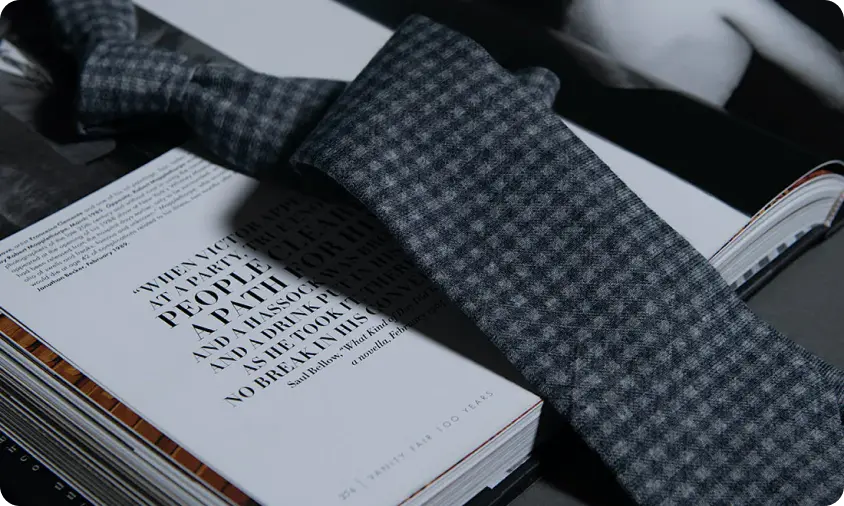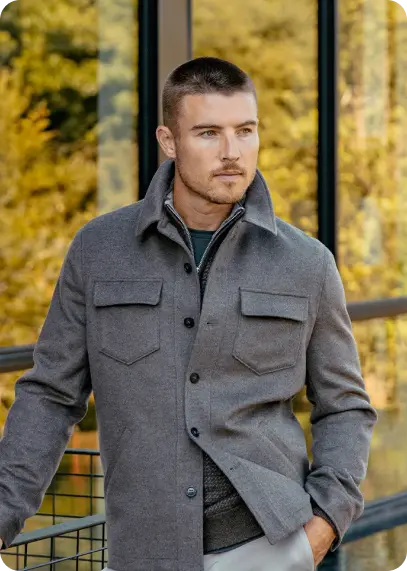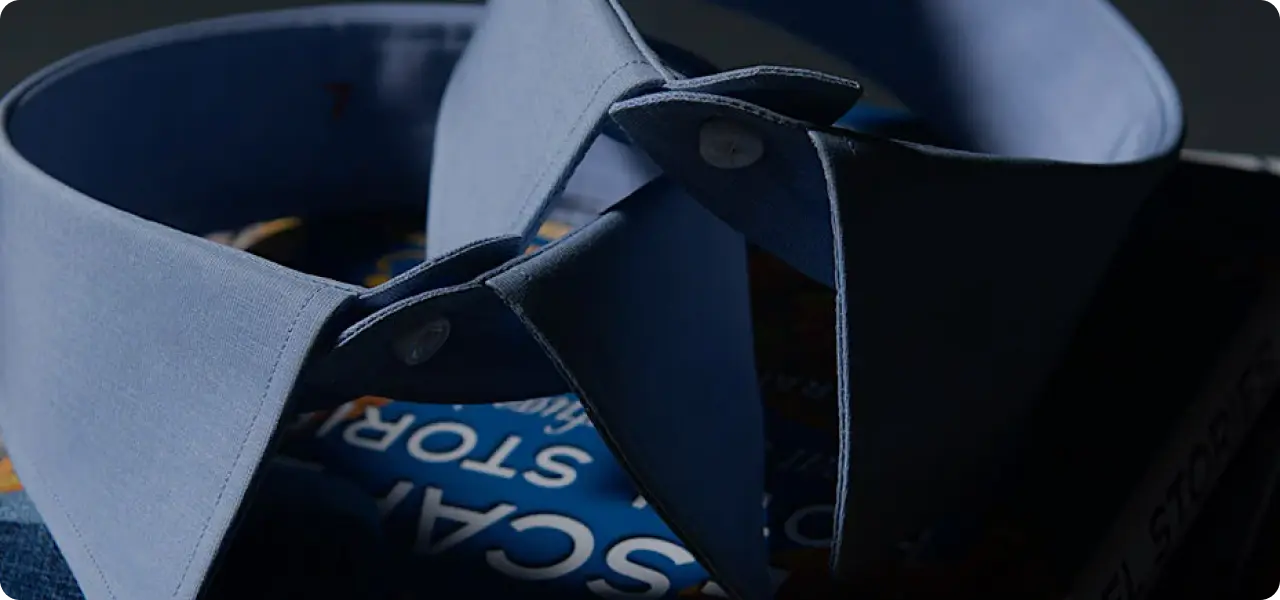Fashion Industry
Originally, all "fashion" consisted of handcrafted clothing. Creating clothes was a meticulous process with bespoke tailoring setting the standard for quality and personalization. Bespoke garments were the norm until the Industrial Revolution, when mass production techniques resulted in a profound shift. The focus changed from pure craftsmanship to a competition for who could become the biggest global powerhouse of production, distribution, and marketing.
This period ushered in the concept of fast fashion, characterized by rapid production cycles, lower costs, and an ever-changing array of fashion trends aimed at encouraging frequent consumer purchases. Despite its economic success, the fast fashion model has come under scrutiny for its environmental impact, as well as ethical and quality concerns. The rapid turnover of garments contributes to significant waste and exploitation within the supply chain of fashion businesses, sparking debates about the sustainability of such practices in the fashion world.
In response, the fashion industry continues to shift towards more sustainable practices. Consumers are increasingly valuing quality over quantity, leading to a resurgence in demand for custom clothing and bespoke fashion. This movement not only reflects a desire for garments that uniquely fit the individual’s body and style but also signifies a broader trend toward sustainability and ethical consumption.
Is Custom Clothing Just A Trend?
The surge in interest in custom clothing prompts a critical examination: will the trend fade away, or does it represent a fundamental shift in consumer preferences and the landscape of the fashion world? Customized clothing, encompassing tailored clothing for both men's fashion and women's clothes, has seen a significant resurgence. A movement driven not just by exclusivity, but also by the increasing demand for garments that reflect the personal style, fit perfectly, and uphold sustainable practices.
Sustainability
Part of the interest in custom clothing stems from an interest in eco-friendly materials and other sustainable practices. After all, consumers are only ever becoming more aware of the environmental impact of fast fashion. By opting for personalized garments, they can reduce waste and support ethical manufacturing practices. This trend reflects a growing commitment to conscious consumption and the desire to align personal style with eco-friendly choices.
Personalization
Consumer demand for unique, personalized fashion items has never been higher. In an era dominated by mass production, people are seeking ways to differentiate themselves through their attire. As it turns out, tailored clothing is an exciting way to express their individuality. This shift is indicative of a broader change in consumer values, where quality and uniqueness are prized over the ubiquity of fast fashion.

Social Networking
The impact of social media and influencers in advocating for bespoke clothing is significant. Social networks serve as platforms for displaying custom-made outfits, where influencers and style leaders often highlight the benefits of these personalized pieces. This exposure has been instrumental in bringing tailored apparel to the forefront, broadening its appeal to a larger demographic and integrating it into contemporary fashion movements.
Together with technological progress and the advent of online shopping, which have made bespoke options both more reachable and economical, custom apparel is set to maintain its expansion. This indicates that its increasing popularity represents not merely a temporary fad, but a permanent shift within the fashion sector.
Origins and Evolution of Bespoke Tailoring
Bespoke tailoring, a hallmark of craftsmanship and elegance in the fashion industry, has a rich history that traces back to the early Middle Ages in Europe. The term "bespoke" itself, originating from Savile Row in London—known as the "Golden Mile of Tailoring"—signifies clothing made to a particular specification. Initially, bespoke tailoring was a necessity, as each garment was crafted to fit the wearer's unique measurements, long before the advent of ready-to-wear men's fashion and women's clothes.
Over centuries, bespoke tailoring evolved from its humble beginnings to become a symbol of luxury and exclusivity. This transformation was influenced by various historical developments including booms in wealth, knowledge, and industrial advancements. According to sources like Gentleman's Gazette and Jasper Littman, the evolution of bespoke tailoring reflects the broader changes within society youth culture, and the economy, marking it as an enduring tradition in the fast-paced world of fashion trends.
The Bespoke Process: From Consultation to Final Fitting
The bespoke tailoring process is meticulous, beginning with an in-depth consultation between the tailor and client. This initial meeting sets the foundation for creating a garment that perfectly matches the client’s desires, from fabric selection to style preferences. A unique pattern is then drafted, marking the beginning of a journey that involves multiple fittings to ensure the garment fits impeccably.
Throughout these stages, the tailor's expertise and attention to detail are paramount, as adjustments are made to achieve the desired silhouette and comfort. This process, as detailed by sources like A Hand Tailored Suit and Senszio, underscores the personalized nature of bespoke fashion, making each piece a unique expression of the wearer's individuality and classic style.
How Bespoke Tailoring Has Adapted to Modern Fashion Needs and Preferences
Despite its historical roots, bespoke tailoring's timeless elegance has allowed it to seamlessly integrate into the modern fashion world. Technological advancements have played a significant role in this evolution, making bespoke suits and fashion more accessible to a broader audience. Digital consultations, 3D body scanning, and online fabric selections are just some of the innovations enhancing the bespoke experience. Furthermore, as the fashion industry grapples with issues of sustainability and ethical production, bespoke tailoring offers an appealing alternative.
Custom clothing minimizes waste through precision and personalization, aligning with the growing demand for sustainable fashion options. Today, bespoke tailoring not only caters to traditionalists seeking the pinnacle of men's fashion but also embraces traditional styles of women's clothes, reflecting the diverse and evolving fashion trends within the fashion world.
Definition and Scope of Custom Clothing in the Context of Modern Fashion
Custom clothing, often synonymous with terms like personalized fashion, or made-to-order garments, is transforming the landscape of the fashion industry. This approach allows individuals to have a direct hand in the creation of their wardrobe, specifying everything from the fabric to the fit and design details before purchasing clothing. Unlike traditional off-the-rack purchases, custom clothing caters to the unique preferences and measurements of each customer, ensuring a garment that not only fits perfectly but also reflects the wearer's style.
In the modern fashion world, this trend is gaining momentum, with both men's fashion and women's clothes being influenced by the move towards more personalized attire. The rise of custom clothing signifies a shift in consumer values towards individuality and quality, challenging the traditional retail model and setting new standards in the fashion industry.

The Benefits of Custom Clothing: Fit, Personalization, and Quality
The advantages of custom clothing are manifold. First and foremost, the fit is unparalleled. Bespoke fashion means that every aspect of the garment is tailored to the individual's body, eliminating common issues with mass-produced clothing such as too-tight sleeves or awkwardly fitting pants. Personalization is another significant benefit; customers can express their unique style through customized clothing, choosing colors, patterns, and details that aren't available in mass-produced items.
Additionally, the craftsmanship involved in custom tailoring frequently exceeds that found in off-the-rack clothing due to the careful attention to detail and the employment of premium materials, which lead to the creation of enduring and classic items. This enhanced quality not only improves the experience of wearing such garments but also supports a more sustainable fashion ethos by advocating for the making and buying of clothes that are designed to last and remain stylish beyond fleeting fashion fads.
Technological Advancements Enabling Custom Clothing
Technological advancements have played a pivotal role in making custom clothing more accessible and convenient. Innovations such as 3D printing and body scanning allow for precise measurements without the need for physical fittings, streamlining the bespoke process. Online shopping and customization tools offer a user-friendly interface for selecting fabrics, styles, and detailing, bringing the luxury of bespoke fashion to a wider audience.
These technologies not only improve the efficiency and accuracy of custom clothing production but also open up new possibilities for creativity, fashion statement, and design in the fashion trends. The integration of technology into the fashion industry has democratized bespoke tailoring, enabling more people to participate in the creation of tailored clothing that meets their unique needs and preferences. This evolution represents a significant shift in how consumers approach fashion, encouraging a more personalized and sustainable relationship with their wardrobe.
Start Your Custom Clothing Experience At Q Clothier
If you’re ready to experience the culmination of custom clothing's evolution, look no further. At Q Clothier, our custom tailors know exactly how to provide you with the perfect fit, and a great long-term investment.
From custom t-shirts to fully customized suits, we’ll work with you every step of the way to meet all of your needs. Plus, you’ll be able to sit back and relax knowing you’re going to get the best quality. Not only are our tailors highly experienced, but we only partner with the world's finest mills (e.g. Ermenegildo Zegna, Loro Piana, Scabal, and more).
So, if you’re interested in starting your custom clothing experience, you can get started on our website, or contact us at one of our many locations around the US.


